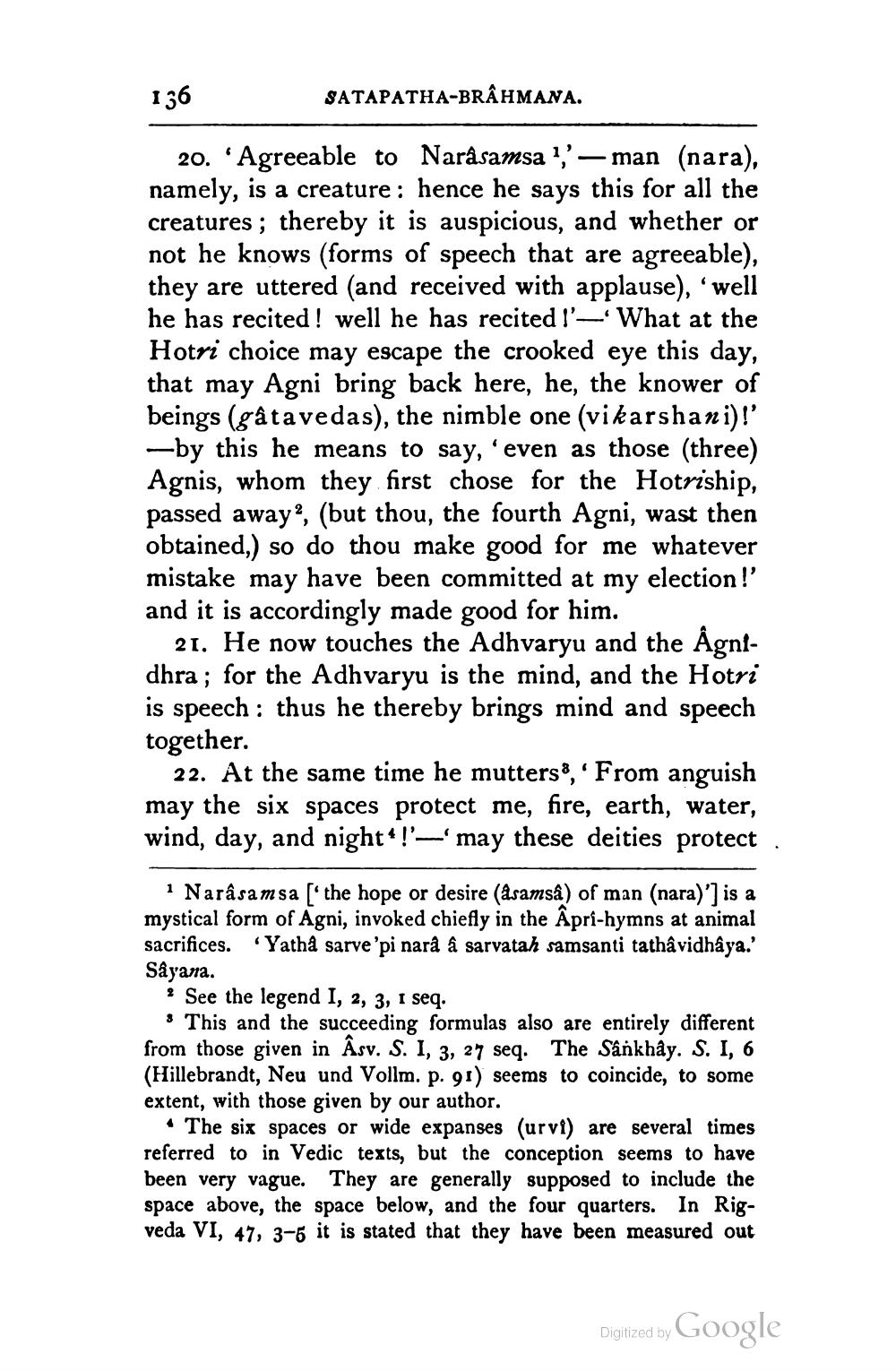________________
136
SATAPATHA-BRAHMANA.
20. Agreeable to Narasamsa?' — man (nara), namely, is a creature: hence he says this for all the creatures; thereby it is auspicious, and whether or not he knows (forms of speech that are agreeable), they are uttered (and received with applause), 'well he has recited! well he has recited I'—'What at the Hotri choice may escape the crooked eye this day, that may Agni bring back here, he, the knower of beings (gâtavedas), the nimble one (vikarshani)!' -by this he means to say, 'even as those (three) Agnis, whom they first chose for the Hotriship, passed away?, (but thou, the fourth Agni, wast then obtained,) so do thou make good for me whatever mistake may have been committed at my election!' and it is accordingly made good for him.
21. He now touches the Adhvaryu and the Agnfdhra ; for the Adhvaryu is the mind, and the Hotri is speech : thus he thereby brings mind and speech together.
22. At the same time he mutters, ' From anguish may the six spaces protect me, fire, earth, water, wind, day, and night*!'—'may these deities protect
i Narâsamsa ['the hope or desire (a samsa) of man (nara)') is a mystical form of Agni, invoked chiefly in the Apri-hymns at animal sacrifices. Yatha sarve 'pi narà a sarvatah samsanti tatha vidhaya.' Sayana. ? See the legend I, 2, 3, 1 seq.
This and the succeeding formulas also are entirely different from those given in Âsv. S. I, 3, 27 seq. The Sânkhây. S. I, 6 (Hillebrandt, Neu und Vollm. p. 91) seems to coincide, to some extent, with those given by our author.
• The six spaces or wide expanses (urvi) are several times referred to in Vedic texts, but the conception seems to have been very vague. They are generally supposed to include the space above, the space below, and the four quarters. In Rigveda VI, 47, 3-6 it is stated that they have been measured out
Digitized by Google




